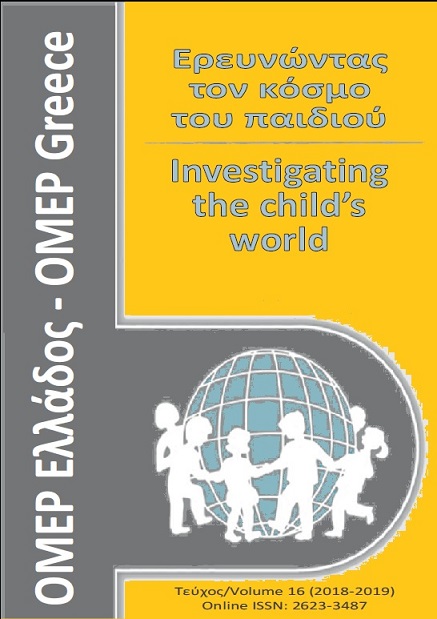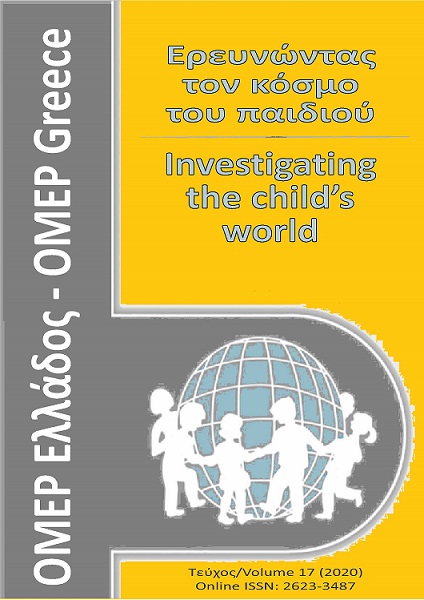Male early childhood educators in childcare centers. Attitudes about their role and absence. A qualitative study

Abstract
The present paper is a qualitative study which investigates the views as well as the experiences of early childhood educators regarding the role and reasons behind the phenomenon of male educator's absence in early childhood education (ECE) workforce in Greece. Twelve early childhood educators participated in the study. Educators were working at childcare centers in the municipality of Thessaloniki, Greece. Data were collected through individual, semi-structured interviews and analyzed through thematic analysis. Thematic analysis revealed three core factors regarding the role and presence of male early childhood educators in childcare centers namely: a) men seemed unsuitable in childcare centers, b) they represents a paternal role model in childcare centers and c) caring for young children: women's role. Τhe findings highlighted that social norms, social expectations regarding gender assigned roles and lack of support are challenging male presence in childcare. Need for all stakeholders to get involved in advocacy programs and policies aimed at recruiting and retaining men in early years settings.
Article Details
- How to Cite
-
Γρηγορόπουλος Η. Ν. (2020). Male early childhood educators in childcare centers. Attitudes about their role and absence. A qualitative study. Investigating the child’s World, 16, 42–57. https://doi.org/10.12681/icw.19006
- Issue
- Vol. 16 (2019)
- Section
- Scientific articles & educational projects

This work is licensed under a Creative Commons Attribution-NonCommercial 4.0 International License.
Authors who publish with this journal agree to the following terms:
· Authors retain copyright and grant the journal right of first publication with the work simultaneously licensed under a Creative Commons Attribution Non-Commercial License that allows others to share the work with an acknowledgement of the work's authorship and initial publication in this journal.
· Authors are able to enter into separate, additional contractual arrangements for the non-exclusive distribution of the journal's published version of the work (e.g. post it to an institutional repository or publish it in a book), with an acknowledgement of its initial publication in this journal.
· Authors are permitted and encouraged to post their work online (preferably in institutional repositories or on their website) prior to and during the submission process, as it can lead to productive exchanges, as well as earlier and greater citation of published work.



